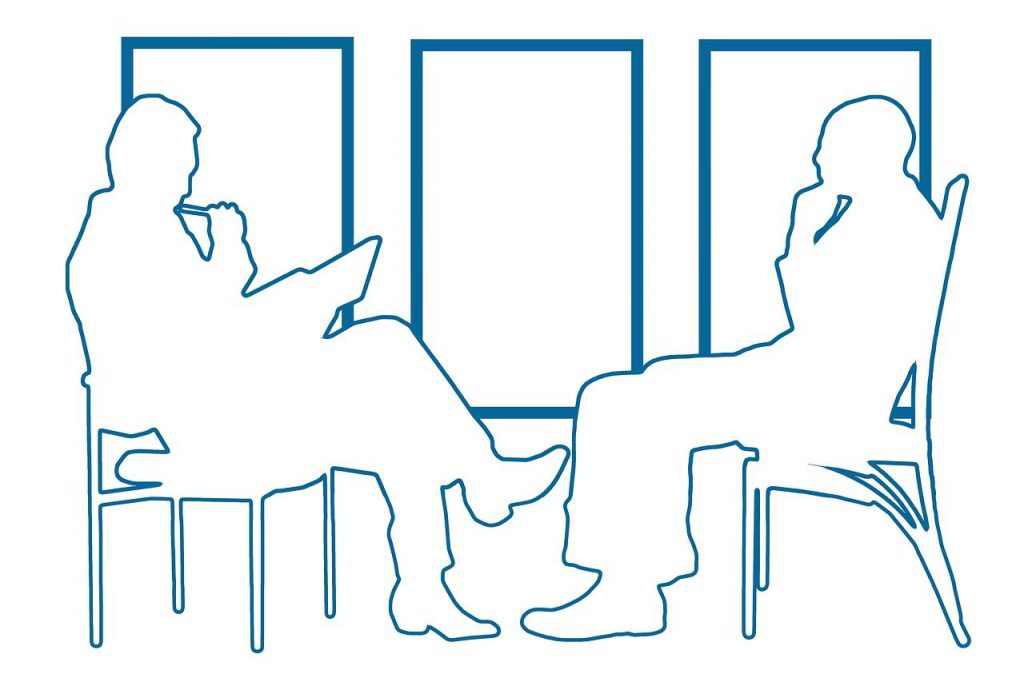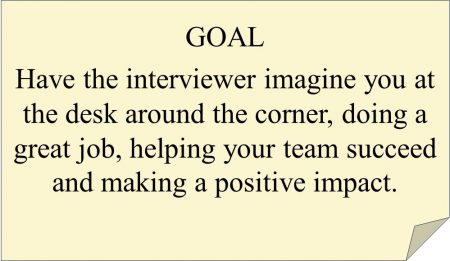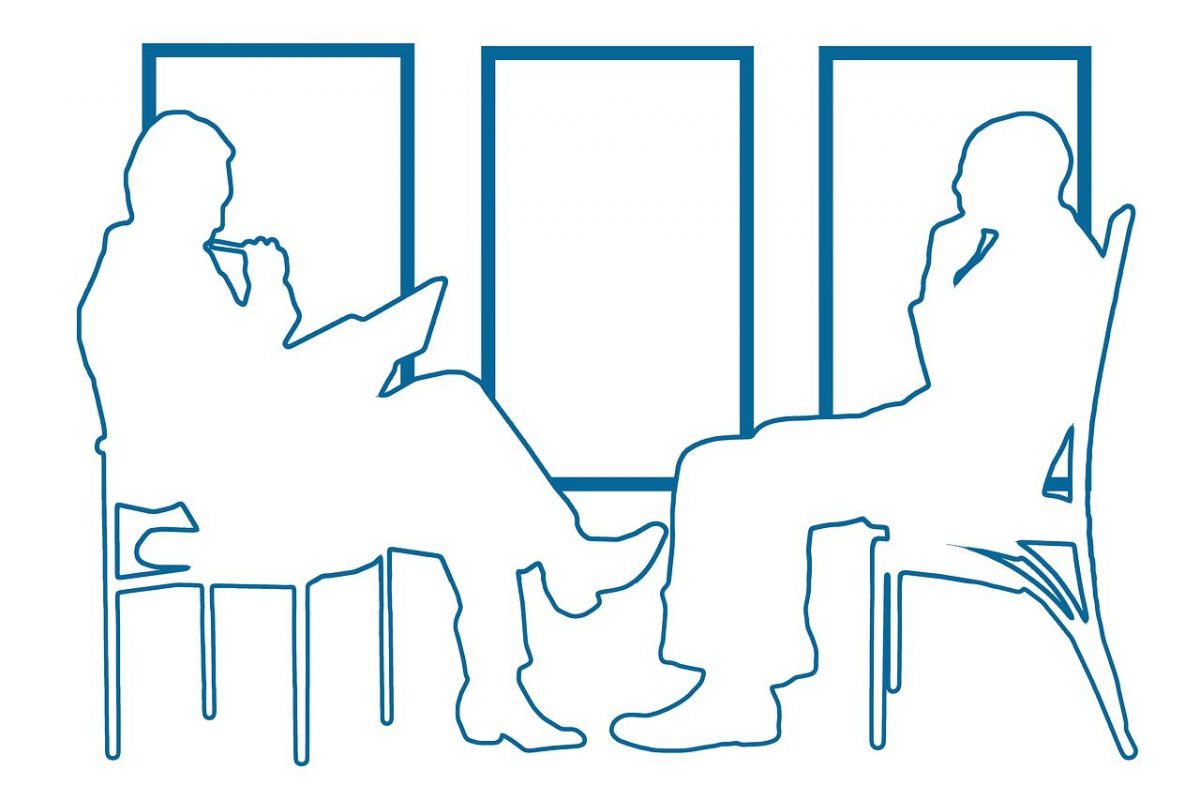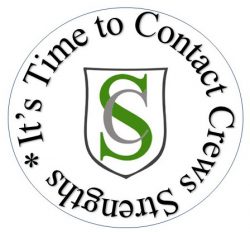
This post is the second part of a short series on interviewing. The first post can be found here. If you haven’t read it or need to refresh your memory, give it a review before delving into this post about types of interview questions.
Interview Questions: Types and Answers
When you answer any interview question, you need to connect yourself to the job. You need to make the interviewer see you as the best possible candidate.
Remember that the job opening is not only about your expertise in sales, renal surgery or basket weaving. It is also about getting along with your manager and filling a role in a team. Your goal is to have the interviewer imagine you at the desk around the corner, doing a great job, helping your team succeed and making a positive impact. The best mechanic who can’t get along or show up on time or help an overwhelmed coworker, is not the best candidate. The best candidate needs to be competent and qualified but also needs to know how to get along with the boss, the staff, and the customers. Skills can be worked on, decency frequently can’t.

Interview questions fall into one or more of several categories. Those categories are:
- Ability
- Qualification
- Knowledge
- Personality
- Behavioral/Situational
- Opinion
- Quirky
- Stress
In this post, I’ll cover the first three types of questions which are about you and the work that the organization needs you to perform. Next post will be about questions related to you, the person, and how you fit in. In both cases, the answers you give should save the interviewer’s energy when it comes to connecting you with the job. Questions about your abilities, qualifications and knowledge need to be linked to what the interviewer thinks is needed to perform the job. In cases where you do not easily check off a requirement, you need to help the interviewer understand that you possess talents that a successful employee performing that job should have.
- Ability Questions
Ability questions concern your performance at the jobs you have had and the ability to perform in the position for which you are interviewing. This type of question is used to expound on the information you presented in your resume.
Example: “What were your responsibilities in your last job?”
Your answer should list the major responsibilities but expound on the ones that relate to the job you are seeking. Make it easy for the interviewer to see you succeeding in her team.
If the job listing includes developing training, then after stating that you managed two employees, created quarterly financial reports, and arranged travel for your boss, explain in more detail how you helped train the staff when a new software package was adopted. Do this even if it was not your primary function. Include times when you might have informally taught or instructed people, even if it was about how to cover your duties while you were on leave. The most important thing is to link your experiences with the needs of the interviewer.
Example: “Are you familiar with ______________ software?”
You are not being asked to list every version of Microsoft Office you have used. The question is really about what types of software you have used to perform what kinds of tasks. He is also asking about your comfort with technology. If there is a way to find out what software they use, then that makes it easier. If you have not used their software, you want to show experience with similar types of programs. Also helpful is a (true) story about how you taught yourself to use particular types of software, to show your comfort with technology and willingness to improve skills.
Example: “Have you ever had to fire an employee?”
Not the happiest question, but a legitimate one for someone who manages people. If you have, answer the question putting yourself in the best possible light. “I had an employee that I had to reprimand for being late on multiple occasions. This woman told off-color jokes and made staff uncomfortable. After trying to help her with her issues, it became obvious that this person did not belong in our organization. I arranged a small severance to try to help carry this person over until they found work. Afterwards, the staff was so pleased to be rid of the person, they covered her tasks until I was able to hire a suitable replacement.” Take note that you just told a little story in which you were the hero. You appear justified in your actions, professionally trying to deal with the person and ultimately humane in your treatment.
Telling this kind of story is an excellent way to garner the interest of the interviewer. Most interviewers like stories and they are easier for them to remember when they are weighing your candidacy.
If you dealt with someone who you helped not get fired, then use that story, adding how you would have handled the matter if it had not been resolved. If you never came close to firing someone or you have never been a manager before, you might mention some other distasteful task that you were forced to perform and tell how that has prepared you to make tough but fair decisions.
2. Qualification questions
Qualification questions are about external confirmation of your abilities. This might include questions about education, degrees, or certifications.
Hiring managers can be anxious about the possibility of hiring someone who might not work out or fit in. Qualifications provide them with reassurance.
In many fields, particular degrees, especially undergraduate degrees, are nowhere near as important as they seem on paper. Offices are loaded with people who have liberal arts degrees that have little to do with the marketing, sales, or technology tasks that they are performing on a daily basis. Over 50% of baccalaureate degree holders in the U.S. are not even working in their degree field. Find ways to show that your history degree is as valuable as the business degree that was in the job listing. Any degree does indicate that you have made an effort to complete work. Sigma cum laude or honors, indicate an even higher level of effort.
A client, who was working in the sales department of an industrial automation company, asked me if she should include her Master of Education degree on her resume and LinkedIn profile. I admitted that she could remove it if that made her more comfortable. However, I recommended that instead, she should prepare an answer about how her MEd gave her an edge as a salesperson.
Certifications or licenses also serve as proof of accomplishment. They are however, a little different than degrees. Usually, they are earned by people seeking a particular technical skill. If you have certifications and no degree, you might need to explain your clear vision of the work you wanted to do and the fact that you have been able to have career success in spite of or maybe because of not having the degree.
Example: “How many people reported to you in your last job?”
Job titles like manager seldom indicate the number of people who reported to you. In fact, some people with the title manager have no direct reports. In answering, you can also mention other situations where you directed people such as in a club or social activities. Getting people organized and working together also occurs in places other than work.
Example: “What additional training have you had?”
Point out what is on your resume. The interviewer may not have read it very closely. Also think of workshops, seminars, LinkedIn Learning, even Red Cross training if it applies to the job. Remember, you are giving the person on the other side of the interview table facts to back up the positive feeling she has about you.
3. Knowledge questions
Knowledge questions are used to draw out your current, professional knowledge about the interviewer’s company and industry. Ability and qualification questions indicate what you know about the field. Knowledge questions are asking you to apply your abilities and qualifications. This is also a chance to discover if you have continued to keep current in your field, or if you know more than your education indicates.
If you are changing fields, be prepared to indicate a knowledge of the new field. You may be doing similar work, but the interviewer will be placed at greater ease if she feels that you know something about her business.
Example: “What do you think are the most important developments in this industry?”
Always research the company, the industry and the community when preparing for an interview. The ability to speak about a recent invention, marketing campaign or court case indicates that you have an interest in the company and its industry.
Example: “What steps would you take to make this department profitable?”
Hopefully, your research has indicated why the department is not profitable. If so, then you will use that knowledge to explain how you would do things differently. Always, preface your answer by acknowledging that some details may be different once you are on the inside. Also avoid bad mouthing the person you will replace. You never know what the relationship between the interviewer and your potential predecessor is.
If you don’t know the details, which is more likely, then use your more general knowledge to describe a process that you would use. Look for clues in the reaction from the interviewer as you go along. If they seem sceptical, ask them for clarifications thus showing your eagerness to know more and apply newly gained knowledge.
That covers many types of questions in the areas of expertise, experience, and knowledge. It is not exhaustive but should help you think about what you are being asked and therefore how to answer. Your answers to these questions need to be designed to give the interviewer comfort in your ability to perform the work. Next post, I’ll discuss questions about you as an individual.
Thank you
Thank you for continuing to read these posts. I trust that you find them valuable.
If you found this post to be of value, please like it and comment on it on LinkedIn at this location.
Helping people stop hating their jobs by finding meaningful, purposeful, engaging work is my goal. If you need help working around your weaknesses, please contact Crews Strengths. If you are considerng a job search, creating a resume, deciding to make a career move or figuring out how to put your Strengths to work, please reach out.

